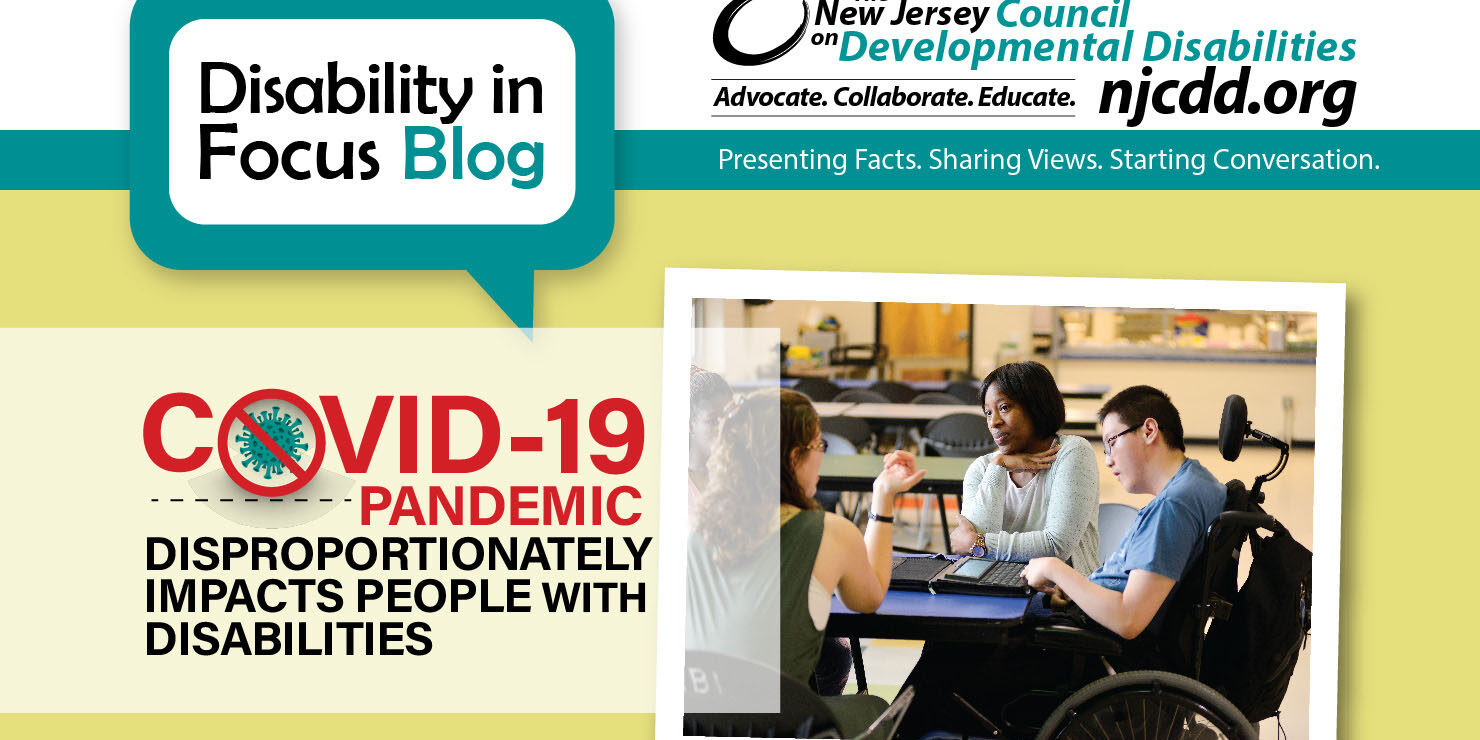By Jeremy Einbinder
If there is one issue that is uniting people in every part of the world right now, it is the COVID-19 pandemic. It is an issue which affects not only the health of the human species the world over, but also the global economy. It changes the lifestyles and daily routines of so many people, who are used to going to work or school, hanging out with their friends, generally having places to go outside of their home.
They’re probably not afraid to interact with people. Now, many are. They’re probably used to going on errands without much stress. Now, it involves a lot of stress. They probably have a work-life balance. Now, working from home makes that harder and harder to separate. But for most people, they probably don’t believe they will get severely ill or die if they contracted COVID-19. For people with disabilities, the worry is a little more pronounced.
According to the Centers for Disease Control and Prevention, anyone with an intellectual disability, moderate to severe developmental delay, muscular dystrophy or brain disorders may also be more susceptible to severe illness from COVID-19.
Many experts say that families should check with their care providers to ensure the guidelines are being followed, such as staying home and thoroughly washing your hands, but social distancing may not be entirely possible for some people with disabilities who require aides to help with activities of daily living. They may have unique and individualized needs which require close contact, such as help with personal grooming and hygiene. For these people with disabilities, as well as their assistants, getting through this pandemic may not be so simple.
“People with intellectual and developmental disabilities are a diverse group of people, and so there is no one-size-fits-all approach to keeping them healthy,” said Shannon McCracken, vice president for government relations for the American Network of Community Options and Resources, or ANCOR, a trade group representing disability services providers.
Finding the right approaches could prove to be a challenge for someone who is a health aide.
“Staying home when you’re feeling sick may not be an option if someone with a disability relies on you for the activities of daily life,” McCracken said. “Therefore, the most important thing we can all do is remember that people with intellectual and developmental disabilities and the professionals who support them need to be part of the conversation, and that protocols should be tailored to the unique needs of the person and the situation facing their community.”
But again, it isn’t so simple. Given the tendency of the general population to deem us as less worthy of life, care, and autonomy than our able-bodied and neurotypical counterparts, some disability activities are afraid that people with disabilities may be denied care in the face of the COVID-19 pandemic.
Disability advocate and activist Ari Ne’eman acknowledged in a New York Times op-ed that doctors in Italy are already rationing care on the basis of age and disability. The United States appears to be following the same trend.
Ne’eman expands, saying that some plans single out particularly severe conditions. Alabama recently made the decision that people with severe or profound intellectual disability, according to their government, “are unlikely candidates for ventilator support.” Tennessee is listing people with spinal muscular atrophy who need assistance with activities of daily living among those excluded from critical care.”
Make no mistake: such actions are actively discriminatory toward people with disabilities. If anything, people with such chronic health issues need to be prioritized, not ignored. Healthcare needs to be given to people according to their needs, not the ease to which they can be treated.
Despite the difficulty that comes with treating a pandemic such as COVID-19, the for-profit status of healthcare, health technology and pharmaceutical companies hinders the ability to treat people. Not only that, but vulnerable people, such as people with disabilities, tend to be poorer than the general population. Combine that with the fact that people with disabilities are more likely to have chronic health conditions, and specifically more likely to become severely ill from COVID-19, lack of universal health coverage effectively becomes a death sentence. This must not stand.
The needs of people with disabilities must be accounted for. Not just in times of crisis, but in all times. The pandemic has shown that it is in fact possible for people to work from home. It is clear by now that such an arrangement should always be an option. If workplace and service accommodations are necessary for all during a global pandemic, they’re a useful option to everyone all the time.
In times of struggle and desperation, people have shown themselves to be capable of empathy on a massive scale. It is a good start. We just need to remember that we are capable of alleviating that type of strife even when there is not a potentially lethal virus infecting people all over the world. We are capable of weathering this storm. We are also capable of creating a better, more accessible, more inclusive world.
For more information on how to stay safe during this pandemic, please refer to this plain language guide written by and for people with disabilities: https://scdd.ca.gov/wp-content/uploads/sites/33/2020/03/Green-Mountain-SA-Info-By-and-For-People-with-Disabilities.pdf
Share This Article







